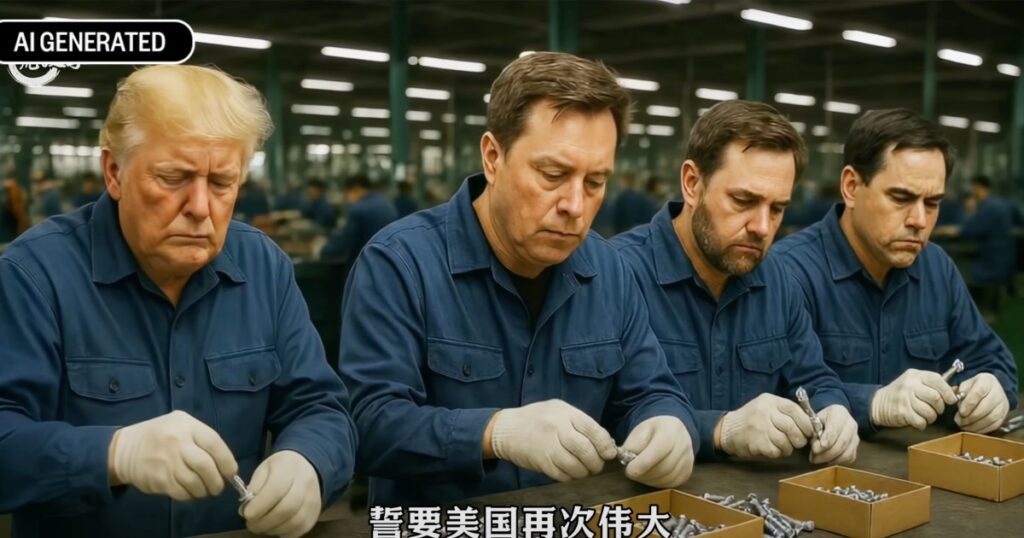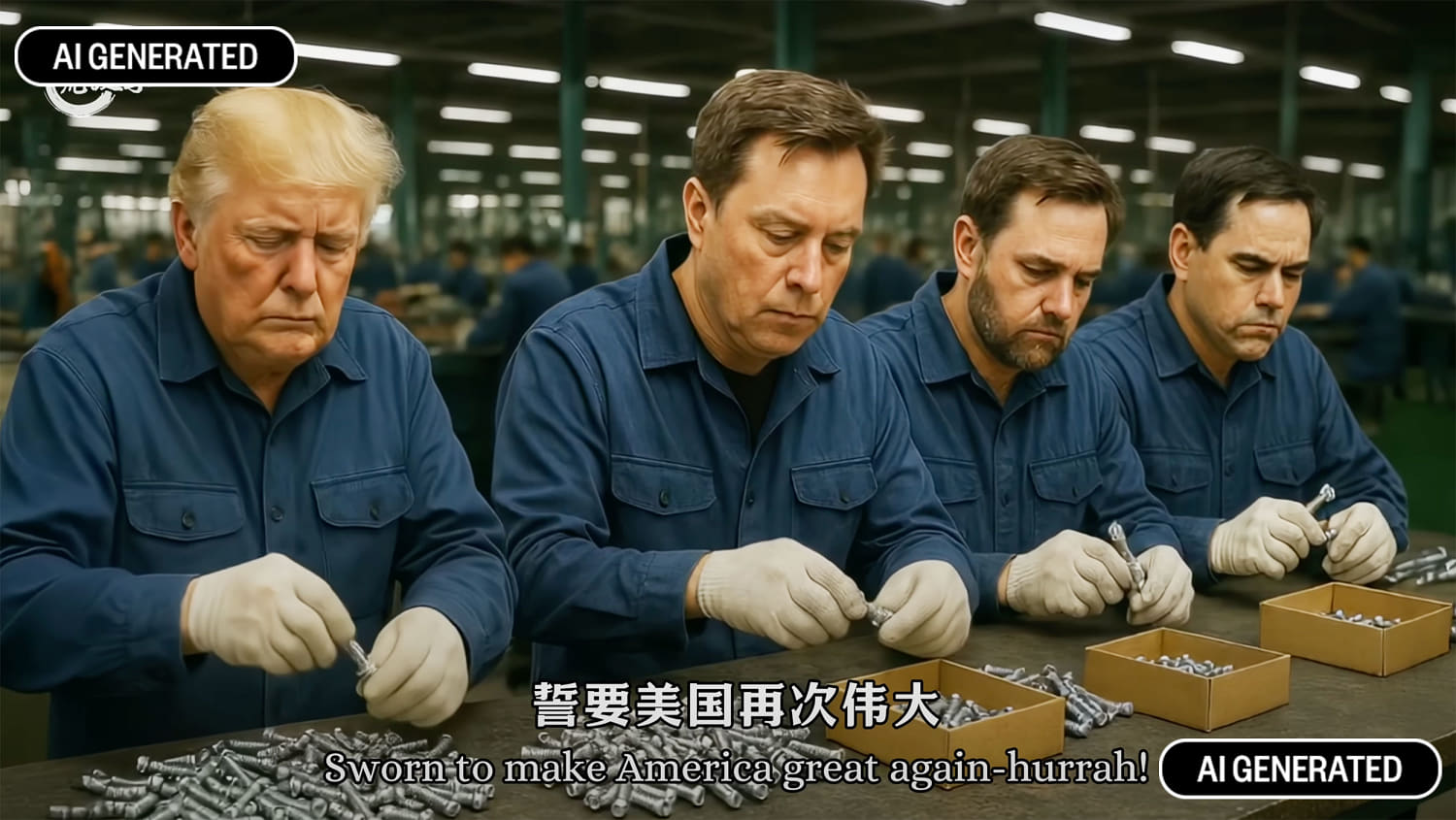

HONG KONG — President Donald Trump has a new nickname in China: “The Lord of Eternal Tariffs.”
Jokes and memes about the tariffs Trump has imposed on Beijing and other U.S. trading partners have been proliferating online in China, embraced by state media seeking to rally the public as well as ordinary internet users bemused by Trump’s policy decisions.
“The Lord of Eternal Tariffs,” which can also be translated as “10,000 Tariff Grandpa,” appeared last week in a report by CCTV, China’s state-run broadcaster, which said Americans were “rising up in arms” against the tariffs amid fears they could harm the U.S. economy.
As the world’s two largest economies appear at an impasse over tariff levels that amount to a mutual embargo — a 145% U.S. levy on Chinese goods, and a 125% Chinese levy on goods from the U.S. —Beijing has been allowing such rhetoric to promote the perception that it has the upper hand over Trump.
China has taken a hard line on the trade dispute, with its Commerce Ministry saying Thursday that the U.S. should revoke all unilateral tariffs against China if it “truly wants to solve the problem.”
Even as the potential impact on their populations begins to sink in, the two countries are far from reaching the kind of trade deal Trump says the tariffs are designed to extract. They can’t even agree on whether talks have started.
Trump said Thursday that U.S. and Chinese officials had met that morning, without specifying who the officials were.
Asked about Trump’s remarks on Friday, the Chinese Foreign Ministry again disputed that any talks were taking place.
“There have been no consultations or negotiations between China and the U.S. on tariff issues,” spokesperson Guo Jiakun said. “The U.S. should not mislead the public.”
Commenters on China’s heavily censored social media have been quick to seize on any suggestion that Trump might blink. Earlier this week, after Trump said the U.S. was “going to be very nice” to China and that final tariffs would “not be anywhere near” 145%, one of the top trending hashtags on the Chinese social media platform Weibo was #TrumpWimpsOut.
Chinese social media users have also satirized what they see as Trump’s strongman aspirations. On RedNote, a Chinese platform similar to Instagram, AI-generated images show Trump dressed like a Chinese emperor.
Others have made fun of the idea of the United States reverting to a nation focused mainly on manufacturing, with one AI-generated video depicting Trump, Elon Musk, Vice President JD Vance and Secretary of State Marco Rubio working on a production line in blue jumpsuits.
Content creators on platforms not accessible in China have also joined in the online mockery. A parody account on YouTube produced a video called “The Song of MAGA,” in which Trump, Musk, Vance and Rubio march together in front of a banner that says “Serve the people,” a political slogan often used by the Chinese government.
“The Lord of Eternal Tariffs” joins other Chinese nicknames for Trump that have been around since his first term, such as “King Know-It-All.” One popular transliteration of Trump’s name is “Trump Builds the Nation” — the nation being China, which some say could become more influential in the world as the Trump administration withdraws from it.
Joking aside, there are indications that both China and the U.S. are looking for ways to minimize the impact of the tariffs on their economies and people. Last week, for example, the Trump administration said that smartphones and other consumer electronics, which are among the biggest Chinese exports to the U.S., would receive tariff exemptions.
Asked Friday about reports that China was considering exempting some U.S. imports from the 125% tariff, Guo, the Foreign Ministry spokesperson, said he was “not aware” of the situation.
But Beijing is openly pushing a campaign to help companies whose exports could be blocked sell them to the domestic market instead.
Six Chinese online retailers, including JD.com and PDD, now have designated sections to help exporters sell their goods to Chinese consumers, the Ministry of Commerce said Thursday.
Walmart’s China unit has rolled out a similar channel in response to Beijing’s call for the “integrated development of domestic and foreign trade,” it said Thursday.
At Joy City mall in Beijing, there are new signs that say “Exports turned domestic” and “Support Chinese-made products.” The section sells a wide range of products, including clothes, shoes, suitcases, canned food and even fine porcelain.
Experts say the campaign may not gain much traction given that the Chinese government has struggled for years to boost domestic consumption.
It’s “naive” for Chinese exporters to make up for their losses by selling in other markets since there are many products that only Americans will buy, such as Christmas decorations, said Andy Xie, an independent economist in Shanghai.
“People need to accept the reality that a lot of businesses will eventually all shut down,” he said.
Peter Guo reported from Hong Kong, and Dawn Liu from Beijing.
 Latest World Breaking News Online News Portal
Latest World Breaking News Online News Portal






